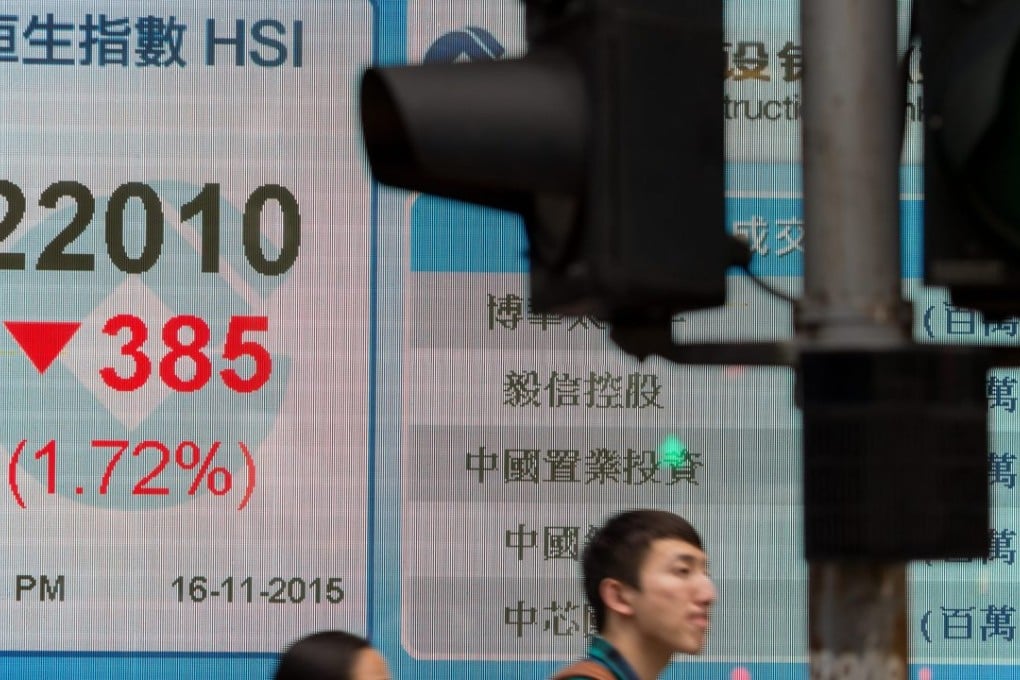New | Hong Kong stocks fall as resource shares hit by weak commodity prices

Hong Kong stocks fell on Tuesday as resource shares took a hit after a stronger US dollar sent commodity prices to multi-year lows.
The Hang Seng Index ended down 0.4 per cent to close at 22,587.63 and the Hang Seng China Enterprises Index gave up 0.7 per cent to finish the day at 10,156.63.
Turnover shrank to HK$57 billion, compared with HK$62 billion in the previous session.
The Shanghai Composite Index reversed early losses and edged up 0.2 per cent to close at 3,616.11, as gains in the brokerage sector overcame the weakness in resource stocks. The large-cap CSI300 was flat at 3,753.89. Turnover stood at 328 billion yuan, compared to 329 billion yuan in the prior session.
Shenzhen markets, which are dominated by small to medium-sized companies, saw bigger gains. The Shenzhen Composite Index rose 1.4 per cent to 2,300.09, while the ChiNext Index advanced 1.6 per cent to 2,816.05.
READ MORE: How the ‘great divorce’ between China and US will drive currency and rates markets
Meanwhile, the yuan stabilised on the spot market, after sinking to a three-month low on Monday. Onshore yuan closed at 6.3883 to the US dollar, stronger by 0.01 per cent from Tuesday’s close. The offshore yuan was trading at 6.4307 per US dollar, weaker than the previous day’s 6.4298.